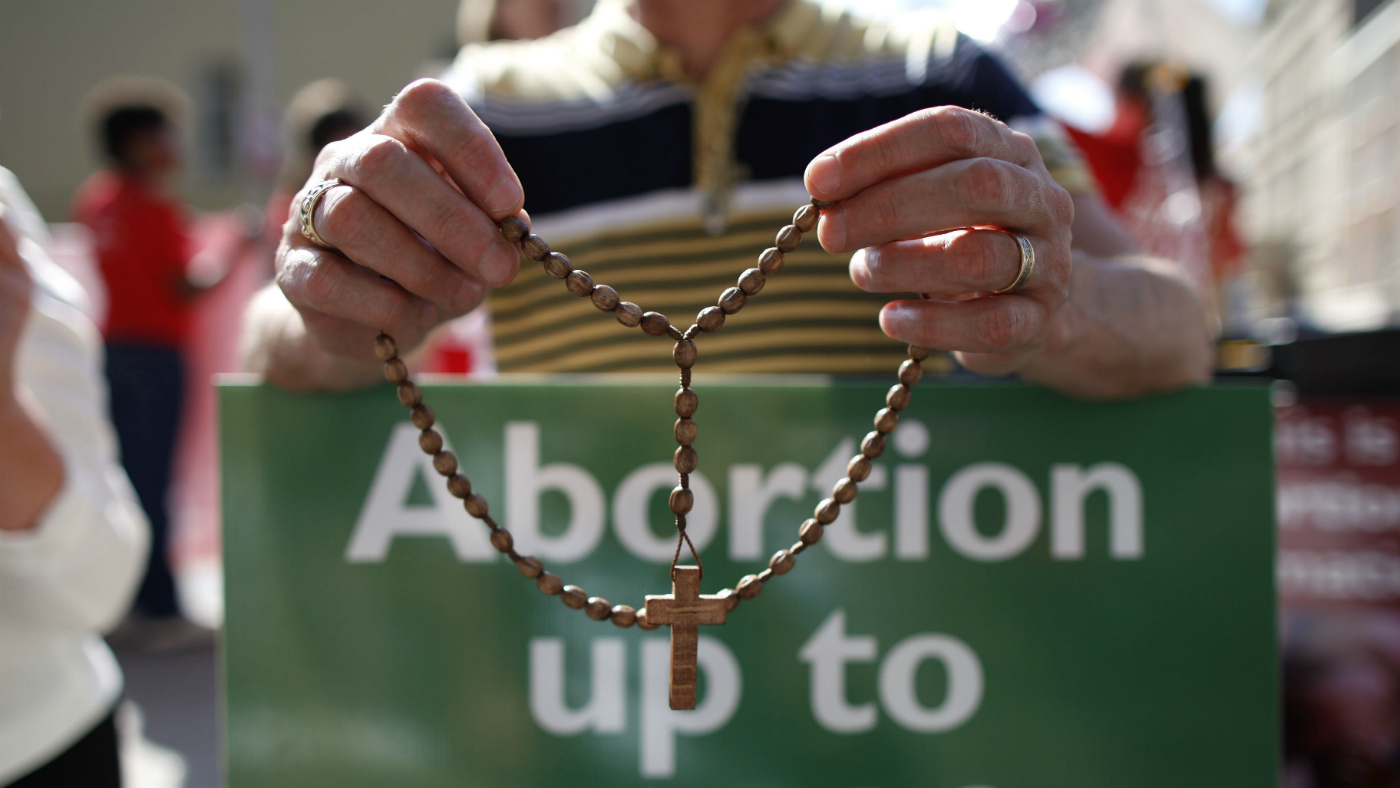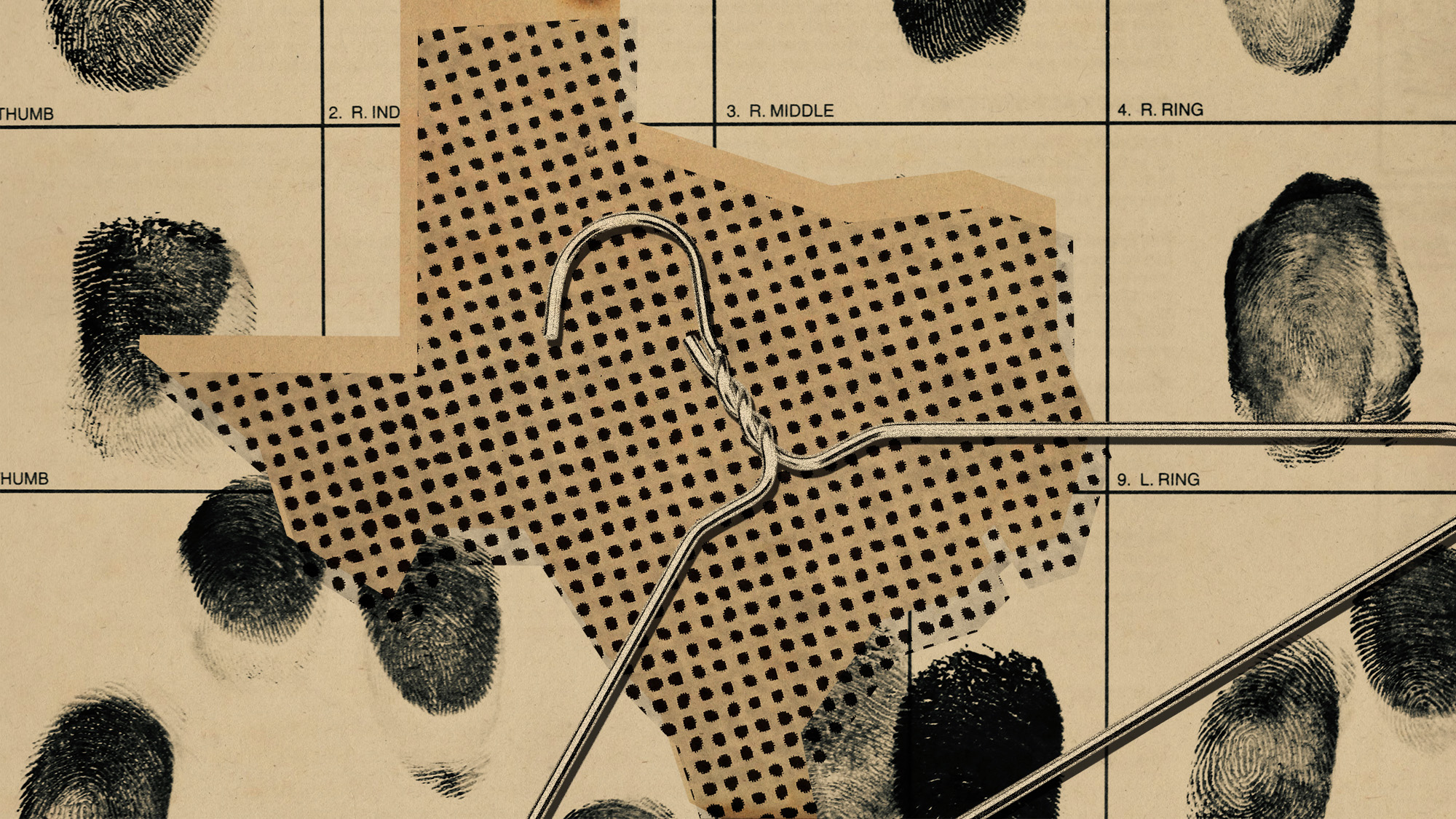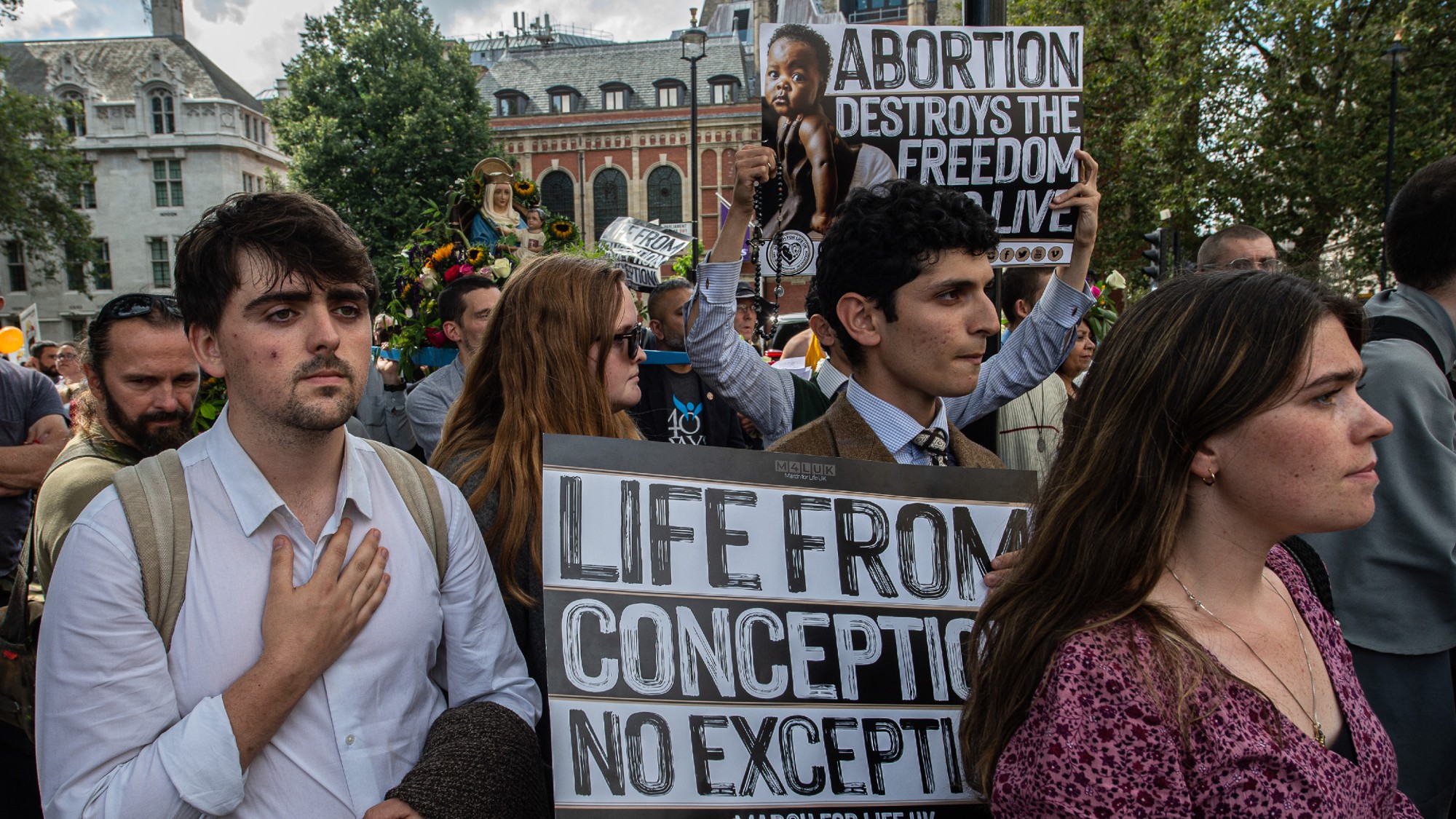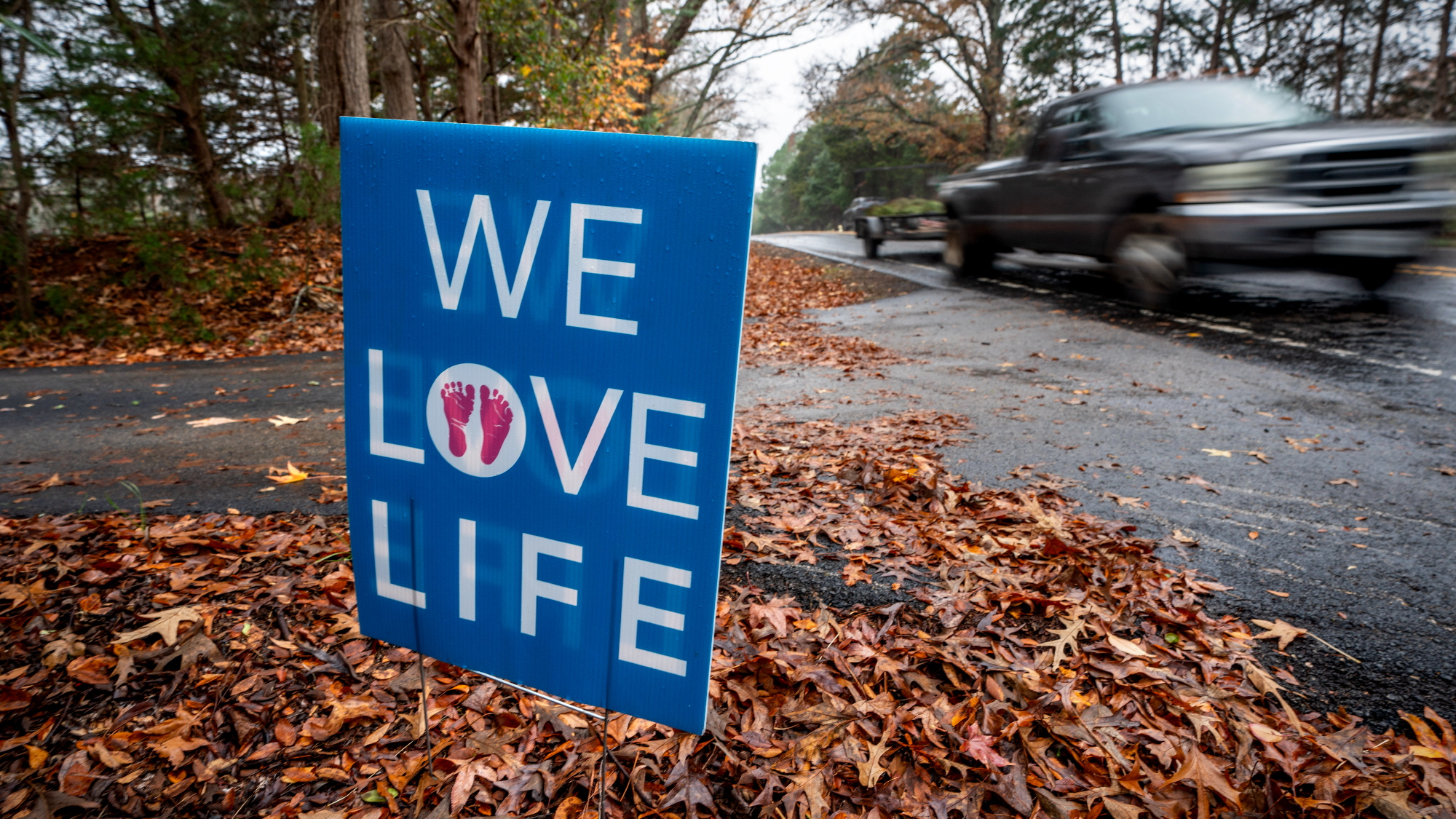Why abortion clinic buffer zones have been rejected
Home Secretary Sajid Javid’s decision has prompted anger from politicians and campaign groups

A free daily email with the biggest news stories of the day – and the best features from TheWeek.com
You are now subscribed
Your newsletter sign-up was successful
Sajid Javid has rejected calls for buffer zones to be put in place outside abortion clinics in England and Wales.
The home secretary acknowledged that some women seeking terminations have faced verbal and physical abuse from anti-abortion activists, but argued that the problem did not warrant a national ban.
Imposing exclusion zones would not be a “proportionate response” because protests only took place outside a “small number” of abortion facilities and mostly involved people praying and handing out leaflets, the home secretary said yesterday.
The Week
Escape your echo chamber. Get the facts behind the news, plus analysis from multiple perspectives.

Sign up for The Week's Free Newsletters
From our morning news briefing to a weekly Good News Newsletter, get the best of The Week delivered directly to your inbox.
From our morning news briefing to a weekly Good News Newsletter, get the best of The Week delivered directly to your inbox.
The decision, which follows a government review of the issue, has prompted a wave of anger from politicians and campaign groups, the Daily Telegraph reports.
Shadow Home Secretary Dianne Abbott branded Javid “a disgrace,” tweeting: “How can he support vulnerable women seeking abortion advice being harassed and intimidated by anti-abortion campaigners?”
Caroline Lucas, co-leader of the Green Party, also condemned the decision and urged the government to reconsider.
“We all have a right to protest - but no-one has a right to harass, intimidate and obstruct women trying to access healthcare,” she said on Twitter.
A free daily email with the biggest news stories of the day – and the best features from TheWeek.com
The British Pregnancy Advisory Service (BPAS) also expressed regret at Javid’s decision and vowed to continue fighting for buffer zones.
“We will keep working until every woman in the country is guaranteed safe and confidential access to pregnancy advice and abortion care, without the threat of being accosted on the street outside,” Clare Murphy, director of external affairs at BPAS, writes for the Huffington Post.
Defending the decision, Home Office minister Victoria Atkins said the government would continue with the current scheme of enabling councils to apply for Public Space Protection Orders (PSPOs), the BBC reports.
Earlier this year, Ealing become the first local authority to impose a PSPO outside a Marie Stopes centre, covering an area of 100 metres surrounding the clinic.
But Richard Bentley, the managing director of Marie Stopes UK, said he did not agree with the current scheme and called for a national solution.
PSPOs “are not permanent measures and risk creating a postcode lottery in which some women are protected from harassment while others aren’t,” he said.
-
 Are Hollywood ‘showmances’ losing their shine?
Are Hollywood ‘showmances’ losing their shine?In The Spotlight Teasing real-life romance between movie leads is an old Tinseltown publicity trick but modern audiences may have had enough
-
 A dreamy long weekend on the Amalfi Coast
A dreamy long weekend on the Amalfi CoastThe Week Recommends History, pasta, scenic views – this sun-drenched stretch of Italy’s southern coast has it all
-
 Can foster care overhaul stop ‘exodus’ of carers?
Can foster care overhaul stop ‘exodus’ of carers?Today’s Big Question Government announces plans to modernise ‘broken’ system and recruit more carers, but fostering remains unevenly paid and highly stressful
-
 FDA OKs generic abortion pill, riling the right
FDA OKs generic abortion pill, riling the rightSpeed Read The drug in question is a generic version of mifepristone, used to carry out two-thirds of US abortions
-
 Study finds possible alternative abortion pill
Study finds possible alternative abortion pillSpeed Read An emergency contraception (morning-after) pill called Ella could be an alternative to mifepristone for abortions
-
 The great departure: Texas OB-GYNs are leaving the Lone Star State
The great departure: Texas OB-GYNs are leaving the Lone Star StateUnder the radar The state is suffering an exodus of health care professionals, creating more maternity care deserts
-
 More women opted for sterilization after Roe was overturned
More women opted for sterilization after Roe was overturnedUnder the radar New research shows that the trend is especially high in states where abortion was banned
-
 The battle for abortion buffer zones
The battle for abortion buffer zonesThe Explainer A 2023 law banning protests around clinics remains unenforced amid dispute over 'silent prayer'
-
 Infant deaths jumped in Texas after abortion ban
Infant deaths jumped in Texas after abortion banSpeed Read Babies born in states with more abortion restrictions may be likelier to die within a year
-
 OTC birth control arrives amid the battle over reproductive rights
OTC birth control arrives amid the battle over reproductive rightsTalking Points Opill will cost $19.99 a month. Democrats are pushing to make it cheaper.
-
 The race to develop male birth control
The race to develop male birth controlThe Explainer New contraception is being conceived